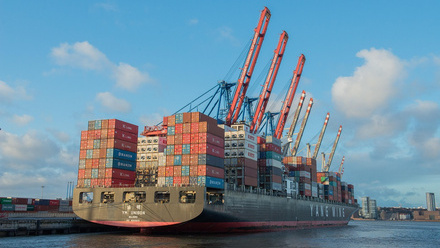We must be ready for knock-on effect of Trump’s tariffs – president

Are we on the brink of a trade war?, writes Nasir Awan.
That’s the major worry in the global trade arena in light of the tariffs imposed by president Donald Trump on some of the United States’ biggest trading partners over the weekend.
These measures, which include a 25 per cent levy on Canadian and Mexican goods and a 10 per cent duty on Chinese products, sent ripples through the global markets.
And it appears Trump isn’t finished. At the time of writing, he threatened further tariffs, with the EU and the UK potentially in the firing line.
The president branded the EU “an atrocity” and the UK “out of line”.
These actions could have significant repercussions at a time when businesses are already dealing with geopolitical uncertainty and cost pressures.
Here in the West Midlands, we have a rich industrial heritage, with sectors such as automotive, aerospace, and manufacturing forming the backbone of our local economy.
Many of our businesses are integral parts of complex international supply chains, relying on the seamless flow of goods and materials across borders.
Trump’s actions over the weekend have already sparked a cycle of retaliation, with the three sanctioned countries hitting back with tariffs of their own.
Supply chains could also be disrupted - this could lead to prices going up as it raises inflation.
Such disruptions could erode the competitiveness of our local industries, potentially resulting in reduced production and economic downturns in our region.
The retaliatory tariffs announced by Canada, Mexico, and China in response to the US actions further exacerbate the situation.
These nations are key trading partners for the UK and heightened trade tensions could lead to decreased demand for our exports, affecting businesses that have painstakingly built relationships in these markets.
The broader implications of a potential global trade war cannot be ignored. The UK economy is intricately linked to global markets, and any slowdown resulting from escalating trade disputes could have a ripple effect on our local businesses.
Financial markets are already showing signs of volatility, which could lead to higher borrowing costs and increased uncertainty for businesses looking to invest and expand.
It is imperative for businesses in the West Midlands to stay informed and agile during these uncertain times.
A key theme of my term as Greater Birmingham Chambers of Commerce president has been encouraging businesses to explore alternative and previously untapped markets.
Last year, we completed a successful series of trade missions to some exciting regions – connecting businesses from the West Midlands to opportunities in Pakistan, Rwanda, Cambodia, Indonesia, Kenya, South Africa, Zambia. Ghana, Mauritius and Sri Lanka.
We’ve also extended our reach to see firsthand how businesses like ours can make a real difference in developing economies, while unlocking the potential to grow our export to these countries.
And there are further plans for 2025, working alongside SheTrades Commonwealth and the International Trade Centre (ITC).
In fact, later this month, I’m supporting a major trade mission in which six African nations and four Asian counties will visit the UK to promote female entrepreneurs.
The event, in Manchester, specifically focuses on empowering female entrepreneurs from these countries, while showcasing products that uphold ethical standards and drive sustainable growth for a brighter, inclusive future.
Exploring alternative markets, diversifying supply chains, and engaging in dialogue with policymakers are crucial steps to mitigate potential adverse effects of trade wars.
These developments from the United States over the weekend come just a few days after Chancellor Rachel Reeves emphasises in her growth speech the importance of building on international trading relationships, particularly with our EU counterparts.
What happens from here is difficult to second guess.
Greater Birmingham Chambers of Commerce remains committed to supporting our members through these challenges, providing resources and advocacy to navigate the evolving trade landscape.
While the full impact of these tit-for-tat tariffs will unfold over time, it is clear that the West Midlands must prepare itself for any knock-on effects.
Dr Nasir Awan MBE DL is president of Greater Birmingham Chambers of Commerce and CEO of Awan Marketing International
This column first appeared in the Birmingham Post


